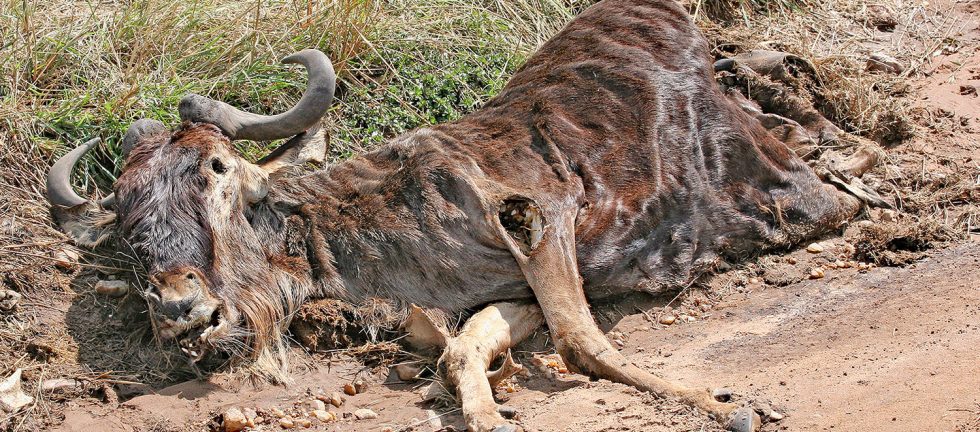Death is the irreversible cessation of all biological functions that sustain an organism. For organisms with a brain, death can also be defined as the irreversible cessation of functioning of the whole brain. Death is an inevitable process that eventually occurs in all organisms. With that said, I am not musing over the meaning of death but its existence.
Death is a strange phenomenon as it’s mysteriously difficult to describe simply. It is a topic not often discussed and yet to meaningfully talk about life or our goals in life and impact of family, friends, colleagues, society in general and environment we must talk about death as well. Death is a guaranteed event in our lives. It is simply a matter of how and when. Goals and milestones in the context of death are of achievements before we die. The goal, the “view” round the bend, as we walk our life’s end journey, may be building a house for the family, or to organize the family burial grounds, or make a pilgrimage to my holly place etc. These goals would have milestones on the way to the goal. The milestones can be the defining factors of personal preparations for the eventual departure from this world.
Individuals’ perception of death is closely linked to their spiritual beliefs. You would think that people who genuinely believe in the existence of “a better life” after death would be itching to die and go to the promised land. On the contrary. If they escape death, say in an accident, they would be the first to thank their God for saving them instead of cursing Him for stopping them from joining the land of “milk and honey”.
Religion or spirituality can provide comfort and strength at the time of death for the person dying and the close relatives and friends. There is a simply written blog on religion and end of life that I read which summarizes the end-of-life expectations of the five major religions: Buddhism, Christianity, Hinduism, Islam, and Judaism. They write that Buddhists and Hindus believe in reincarnation and that deeds from prior lives influence future cycle of rebirths and suffering. The goal is to end the cycle and attaining spiritual enlightenment. Buddhists believe that the soul does not leave the body immediately at death, therefore should be left undisturbed for some hours. Cremation is preferred. In Christianity death is viewed as the separation of the spirit from the physical body. Burial and cremation are acceptable modes of body disposal. In Islam death is regarded as part of God’s (Allah’s) plan. Burial is soon after death after ritual washing and draping of the body. Cremation is not allowed. Jews believe death is a natural process that should be allowed to occur without instituting futile life prolonging procedures. Interventions that scar the body, including autopsies and other procedures that scar the body are discouraged unless they are necessary. Cremation is not acceptable. I give the full reference for people who would like to read it. [Amanda Moale, and Matt Norvell. Religion and End of Life Part 1: How Different Religions View the End of Life. www.endwithcare.org/blogs/FullPost.php?id=32]
Preparation for the inevitable departure from the world cannot be over-emphasized. These preparations are essential to ensure that one’s affairs are left in good order. Making a will is the most important mode of preparation especially for a person with responsibilities to other people. Dying intestate leaves strangers to double guess your wishes. The Baganda have a saying “Alaama ssi yaafa” meaning “Making a will is not a ticket to death”. In other words, one should not fail to make a will for fear of dying. With a well-executed will, the view for the future in the absence of, for example, the bread winner, is made clearer.
As we age, we lose people we know, friends, relatives, acquaintances etc. through death and reduced contact opportunities. While we pray for long life, we do not imagine that, as our prayers are realized, we will be losing many of our contemporaries. That is a “view” in our life’s journey that may be unwelcome. Interrelationships are difficult to fathom. When you live closely with a person for a long time, whether physically or socially, you may not realize how much his or her presence means to your life until the person goes. Soon after the person dies the “view” looks bleak due to the void. You wonder how you will be able to continue with the life’s journey without that person. Fortunately, time heals the wounds of such a loss, although scars remain. Just as memories of long healed body wounds remain, and every time you look at the physical scars you remember them, so do memories of dead friends, relatives, and the people we would have been close to in our lives are never lost.
I have lost many very close friends and relatives over the years and with the passing of each, the view for the future looked fuzzy without the individual. But the mist lifts slowly with the passage of time and the future becomes clearer and life goes on.
Religion plays a central role in death, to the person dying and the people seeing him/her off. Prayers are very often invoked for believers, but die-hard atheists are unlikely to turn to spirituality at the last moment. These are mechanisms for support when we know our time has come to go and for those grieving not to lose hope for the future. In some religions prayers for the dead continue after death praying for their successful journey to eternity.
While our faith may allow us to believe what happens beyond death, life is all we know, and losing it is the greatest loss we can sustain. Death, for everyone, is something that is a blank in our understanding. Our faith may offer reference, but we have no understanding at all of what happens after death. It’s hard to accept, but when we are dead, we are dead. Fear and the unknowns of death are then left to the living.
Apart from spiritual sustaining mechanisms, many societies in Africa have cultural support systems as well, with community members rallying round the bereaved family. Such mechanisms help communities to bond, cutting across religious and political divisions.
A eulogy is a speech or writing in praise of a person who recently died. Eulogies may be given as part of funeral services or as tradition and customs dictate. What to note is that if called upon to eulogize someone, you are expected to praise that person. I ask myself: “What happens to the thieves, despots, drunkards, women beaters etc.? Don’t they die?” I have attended many funerals, but I have never been at one where it was ever acknowledged that the person being sent off was a BAD person. It looks as if death turns people into saints. Some people deserve a dyslogy (a criticism or condemnation) instead of a eulogy.
Much is written about dying but reading through much of it, one is left wondering how much of it is mere academic speculation. Natural death is an individual process more so the event itself.
Understanding the inevitability that we will die is essential to living without the baggage of fear of death.
As humans, we can be both physically and mentally adaptable. Dying is not only part of our human condition, but also at the very heart of it. Teaching ourselves that we do not need to fear death is important for our life’s journey to death. I wish you a long life free of fear of death.
Thank you for being part of the Fork in the Road Blogs: Reflections on Life. Be sure to look out for the next episode when I will be writing about education. If you gathered something useful, please feel free to share the blog. My books, Fork in the Road: Creating a future of value starting from where you are and A view round the bend. Setting goals for your life’s journey are available for purchase at Aristoc bookshops in Kampala, Uganda and online at Amazon.


Comments (5)
Linda
Real food for thought.
Victor Njuki
Stephen presents a thought-provoking and insightful perspective on the topic of death. His exploration of different religious beliefs and cultural practices surrounding death provides a well-rounded view of the subject. The post is well-written and engaging, it captured my attention from start to finish. Stephens emphasis on the importance of discussing death and making preparations for it is commendable. His message of acceptance and living without fear is inspiring and offers a fresh perspective on mortality. Overall, this post is a valuable contribution to the conversation on death and left me with meaningful reflections.
Rtn Stephen
Thank you, Victor, for your comments. I find them encouraging to share my views on social issues as I see them. Read through the rest of postings and leave a comment.
Enoka
A thought provoking article “ as usual”!!
You enlightened us about death as related to Jews, Hindus and Buddhists, what about us Africans and Baganda in particular.
Ashes to ashes, we come from the same basic elements that we eventually get recycled back into. As in thermal dynamics, we are like energy which is not created or destroyed but only changes form.
Rtn Stephen
May be I will revisit the issue with an African focus before I die!